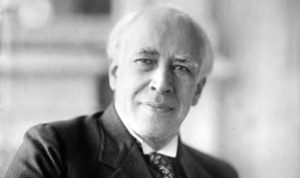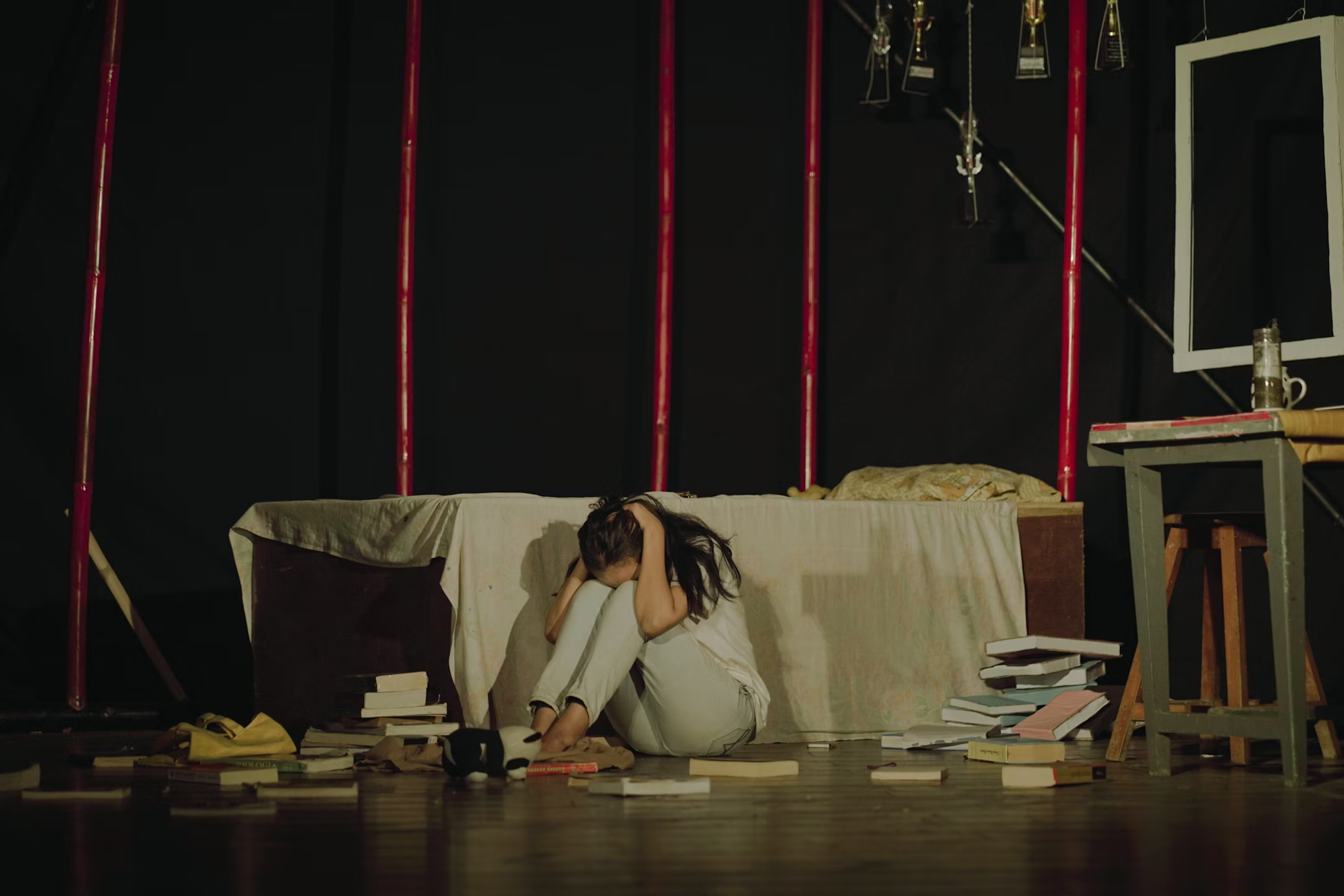What is the Magic If?
By placing themselves in their character’s situation, the actor gains a better understanding of the given circumstances facing the character
(by Tonya Tannenbaum)

(Photo: Jonathan Crews/Unsplash)
RELATED TOPICS:
7 Basic Facts About Konstantin Stanislavski
What is the Stanislavski System?
Every actor who performs a role is portraying a character who is not exactly like themselves, unless the role is autobiographical in nature. When preparing the role, the actor must find ways to understand and relate to their character. Otherwise, it is impossible to accurately portray them.
One technique, created by Konstantin Stanislavski, takes an important step toward solving this problem.
This technique is called the “Magic If”; sometimes referred to as “As If”. The Magic If calls upon the actor to relate to their character by asking a basic question or series of questions centered around the question word, “if”.
By placing themselves in their character’s situation, the actor gains a better understanding of the given circumstances facing the character.
For example, while analyzing various moments in the script, the actor can ask:
• What would I do if I were in this situation?
• How would I respond if he said that to me?
• How would I behave if I found myself facing these problems?
• How would my life change if this traumatic event happened to me?
• What thoughts would go through my mind if I saw that happen to someone I loved? How would I feel inside?
 “When I give a genuine answer to the “if”, then I do something, I am living my own personal life. At moments like that there is no character. Only me.”
“When I give a genuine answer to the “if”, then I do something, I am living my own personal life. At moments like that there is no character. Only me.”
(Konstantin Stanislavski)
By placing themselves in their character’s situation, the actor gains a better understanding of the given circumstances facing the character. And by analyzing how he or she would respond if they, themselves, faced those circumstances, the actor can take more truthful actions when performing the role.
What is the Magic If Technique Used In?
Understanding the Power of Imagination in Acting and Beyond
(By Tonya Tannenbaum)
 (Photo: Rene Ranisch | Pexels)
(Photo: Rene Ranisch | Pexels)
Introduction to the Magic If Technique
In the world of performance and acting, the “Magic If” is a fundamental tool for bringing characters to life. Created by Konstantin Stanislavski, a renowned Russian theatre practitioner, the technique invites actors to imagine themselves in the situations of their characters. Instead of relying solely on personal memory or direct experience, the “Magic If” encourages performers to ask, “What would I do if I were in this situation?”
This simple yet profound method opens up layers of empathy and creativity, allowing for authentic and compelling performances. But the Magic If doesn’t just belong to the acting world — it has made its way into therapy, writing, education, and even leadership training.
Origins of the Magic If
The Magic If was developed by Stanislavski in the early 20th century as part of his broader system of actor training, known as the “Stanislavski System” or “Method Acting.” He realized that actors needed more than imitation or mimicry to deliver believable performances; they needed genuine emotional connections to their roles.
By asking “What if this were really happening to me?”, actors bridge the gap between reality and fiction. Stanislavski emphasized that the actor’s imagination was a crucial tool, and the Magic If acted as a catalyst for imaginative engagement.
Example:
An actor playing Hamlet might not know what it truly feels like to see their father’s ghost. However, by asking, “What if I saw someone I loved who had passed away?” the actor can access authentic emotions of shock, grief, and confusion.
Application of the Magic If in Acting
In acting, the Magic If is used extensively during character preparation and rehearsals. Instead of focusing on trying to become the character outright, actors use the Magic If to create believable actions and reactions.
It’s about understanding motivation: “If I were a young woman trying to survive in a dystopian world (like Katniss Everdeen in The Hunger Games), how would I behave?” This question helps actors make choices that feel true to the character’s situation, even if they have no firsthand experience with it.
Example:
In the film Cast Away, Tom Hanks used the Magic If to imagine what it would be like to be stranded alone on an island. He didn’t experience isolation in real life to that extreme, but by deeply imagining it, he crafted an unforgettable performance.
The Magic If in Therapy
Beyond the stage, therapists, especially those practicing psychodrama or cognitive behavioral therapy (CBT), often use the Magic If to help clients explore alternative perspectives and solutions.
For example, a client struggling with social anxiety might be asked, “What if you could speak to a group confidently? What would that feel like?” By envisioning success, clients can practice new behaviors in a safe, imaginative space before applying them to real-world situations.
Example:
A person terrified of job interviews might rehearse answering questions using the Magic If: “What if I were someone who believed in my skills?” This mental exercise can boost confidence and lead to better outcomes.
Using the Magic If in Writing
Writers, particularly novelists and screenwriters, often use the Magic If to create more authentic characters and scenarios. When developing a story, asking questions like “What if a teenager discovered they had magical powers?” (as seen in Harry Potter) can lead to dynamic plots and believable character development.
The Magic If enables writers to step into the shoes of characters vastly different from themselves, offering readers a richer, more diverse experience.
Example:
In Margaret Atwood’s The Handmaid’s Tale, Atwood didn’t live under a totalitarian regime, but she asked, “What if women’s rights were completely stripped away?” This thought experiment led to one of the most powerful dystopian novels ever written.
The Magic If in Education
Teachers use the Magic If to enhance students’ critical thinking and empathy. Role-playing activities often center around “What if” questions, helping students engage deeply with historical events, social issues, or literary characters.
By imagining themselves in another person’s position, students can explore multiple perspectives, leading to a richer understanding of complex topics.
Example:
In a history class, a teacher might ask, “What if you were a soldier during the American Civil War?” This kind of exercise encourages students to think beyond facts and dates and consider the human experience behind historical events.
The Magic If in Leadership Training
Leadership workshops and corporate trainings sometimes incorporate the Magic If to encourage flexibility, creativity, and empathy in the workplace.
By asking managers to imagine, “What if I were an entry-level employee receiving this feedback?” leaders can better tailor their communication style and foster a more supportive environment.
Example:
In conflict resolution workshops, participants might role-play different sides of a dispute. By practicing “What if I were in their shoes?” they develop stronger negotiation skills and emotional intelligence.
Common Pitfalls and Misconceptions
While powerful, the Magic If can sometimes lead actors or others into overthinking. Instead of letting the imagination flow freely, some individuals get trapped trying to craft the “perfect” emotional response.
Another misconception is that the Magic If replaces research or real experience. While it can bridge gaps, it’s still important for actors, writers, and leaders to ground their work in reality whenever possible.
Example:
An actor playing a doctor should still study medical procedures and terminology — not just imagine what it’s like to save a life. Authenticity grows when imagination and research work hand in hand.
How to Practice the Magic If
Start Small: Pick a simple situation, such as “What if I were late for an important meeting?” and explore your imagined reactions.
Be Specific: Vague “what ifs” are less helpful. The more detailed the scenario, the richer your emotional response will be.
Stay Open: Allow yourself to experience whatever emotions arise, without judgment.
Combine with Research: When applicable, supplement your imagination with factual knowledge.
Example Practice Exercise:
Imagine you are a firefighter running into a burning building to save a child. What emotions surge through you? How does your body feel? What thoughts race through your mind?
Conclusion: The Timeless Power of the Magic If
The Magic If is more than an acting technique — it is a tool for empathy, creativity, and understanding across countless areas of life. From the theater to the therapist’s office, from the classroom to the boardroom, the ability to imagine ourselves in another’s position transforms not just our performances, but our human connections.
When we ask, “What if I were in their shoes?”, we make space for compassion, innovation, and authentic expression. Whether you are stepping onto a stage or stepping into a new challenge in life, the Magic If remains a timeless and powerful companion.
What are more some examples of the Magic If?
Exploring Practical Applications of Stanislavski’s Core Acting Technique
(By Tonya Tannenbaum)
 (Photo: Fairuz Naufal Zaki | Pexels)
(Photo: Fairuz Naufal Zaki | Pexels)
Understanding the Magic If
The “Magic If” is one of the most fundamental concepts introduced by Konstantin Stanislavski, a revolutionary figure in the world of acting. The idea behind the Magic If is quite simple yet profoundly transformative: actors ask themselves, “What would I do if I were in this situation?” rather than attempting to simply imitate emotions or actions.
Instead of trying to replicate an emotion artificially, the actor imagines being in the character’s exact circumstances. This fosters authentic, believable performances because the actor’s own reactions, filtered through the fictional situation, are used.
Stanislavski’s “Magic If” remains a cornerstone of acting training across the globe, from beginner classes to the most prestigious drama academies.
Let’s dive into practical examples of how the “Magic If” is used in real acting situations.
Example 1: Preparing for a Role as a Prisoner
Imagine an actor preparing to play a wrongfully convicted prisoner serving a life sentence. Instead of merely studying real-life prisoners or trying to copy a certain “look,” they ask themselves:
“What if I were imprisoned for something I didn’t do?”
This single question immediately brings forth personal emotions—anger, fear, hopelessness, maybe even acceptance or rebellion. Instead of forcing the portrayal of despair, the actor experiences these emotions internally and naturally.
Actors often report that using the Magic If in scenarios like this leads to spontaneous, deeply moving performances because the emotions come from a real place, though rooted in an imagined circumstance.
Example 2: Acting in a Romantic Scene
Suppose an actor must perform in a scene where they confess love to a childhood friend. They could simply follow the script mechanically, but a better approach would involve the Magic If:
“What if I realized I was in love with my best friend?”
Even if the actor hasn’t experienced this exact situation, they can draw upon emotions associated with friendship, vulnerability, and fear of losing a close relationship. These feelings will flavor their performance with authenticity, making it much more relatable and believable to the audience.
Many actors have said that the Magic If helps break down barriers between “acting” and “being,” allowing genuine emotions to flow through the performance.
Example 3: Portraying Grief After Loss
Playing a character who has lost a loved one can be one of the most emotionally taxing roles. Instead of trying to manufacture tears, an actor might ask:
“What if someone I love more than anyone in the world died suddenly?”
This personalized “what if” creates a deeply emotional connection to the fictional event. Although the actor hasn’t actually experienced this tragedy, they can conjure up the feelings associated with profound loss.
This method is often more powerful than memory recall techniques because it keeps the actor within the circumstances of the play, maintaining authenticity.
Example 4: A Comedy Performance Using the Magic If
The Magic If isn’t reserved only for dramatic roles. Comedy performances benefit from it too! Imagine a scene where a character must pretend to be someone’s spouse at a family dinner.
Instead of forcing humor, the actor might think:
“What if I had to fake being someone’s husband or wife in front of their suspicious family?”
This creates natural awkwardness, nervous energy, and improvised humor. Rather than trying to “act funny,” the actor reacts honestly to the absurdity of the situation—something audiences find far more hilarious and genuine.
Some of the greatest comedic performances are rooted not in trying to be funny, but in responding truthfully to ridiculous situations.
Example 5: Sci-Fi and Fantasy Applications
In genres like sci-fi or fantasy, situations can seem impossible or overly imaginative. How do actors make them feel real? You guessed it: the Magic If.
If an actor has to play a person fighting an alien invasion, they might ask:
“What if our planet was suddenly attacked by creatures we couldn’t understand?”
Even though aliens don’t exist (at least not as Hollywood presents them), the Magic If translates fear of the unknown, adrenaline, survival instincts—all universal feelings—into the performance.
This is why some of the most outrageous stories, when played truthfully, feel more emotionally grounded than you might expect.
The Importance of Specificity in the Magic If
A key to successfully using the Magic If is making the situation specific. Vague questions like “What if I were sad?” don’t generate vivid, playable actions.
Instead, focus on detailed scenarios:
“What if I just found out my closest friend betrayed me?”
“What if I had to tell my family I lost everything we own?”
“What if I was accused of a crime I secretly did commit?”
The more detailed and personalized the question, the richer and more specific the performance will become.
Actors are often encouraged to journal about these scenarios, fully fleshing them out with sights, sounds, smells, and feelings, deepening their emotional connection to the “what if.”
How the Magic If Connects to Other Acting Techniques
The Magic If often acts as a bridge between Stanislavski’s system and other methods like:
Uta Hagen’s “Substitution” technique, where actors substitute real experiences for fictional ones.
Meisner Technique, which focuses on living truthfully under imaginary circumstances.
Method Acting, which sometimes uses emotional memory, combined with “what if” scenarios, to dig into the character’s psyche.
No matter the method an actor prefers, the core idea remains the same: truthful behavior in imagined circumstances.
Many modern acting coaches argue that the Magic If is the safest, healthiest way to reach emotional depth without triggering real-life trauma, as can sometimes happen with pure memory-based methods.
Exercises to Practice the Magic If
If you’re an aspiring actor (or even a seasoned one!), here are a few simple exercises to strengthen your Magic If muscle:
1. Object Transformation:
Hold a simple object, like a spoon. Now ask, “What if this spoon were a magical key to another dimension?” Notice how the way you interact with the object changes.
2. Environmental Change:
Sit in your living room. Imagine: “What if I were sitting here during a flood and needed to evacuate?” Watch how your body language shifts.
3. Relationship Shift:
Look at a friend or fellow actor and imagine: “What if this person were the love of my life who I hadn’t seen in ten years?”
Document your physical, vocal, and emotional reactions during these exercises. Over time, you’ll find yourself slipping into imagined circumstances more quickly and deeply.
Why the Magic If Endures
The Magic If endures because it honors both imagination and authenticity. It allows actors to step truthfully into someone else’s shoes without needing to have lived every possible experience.
By asking “What if…?” actors turn themselves into living, breathing, feeling beings within the fiction of the script. Their performances resonate more deeply with audiences because they are not faking emotions—they are truly experiencing them, filtered through an imaginary lens.
Stanislavski once said:
“There is no such thing as acting; there is only living.”
The Magic If brings that philosophy to life.
Whether you’re preparing for a heartbreaking drama, a laugh-out-loud comedy, or a galactic battle, always remember to ask yourself the magical question:
“What if I were really in this situation?”
You Might Also Like:
What is a Sense Memory?



